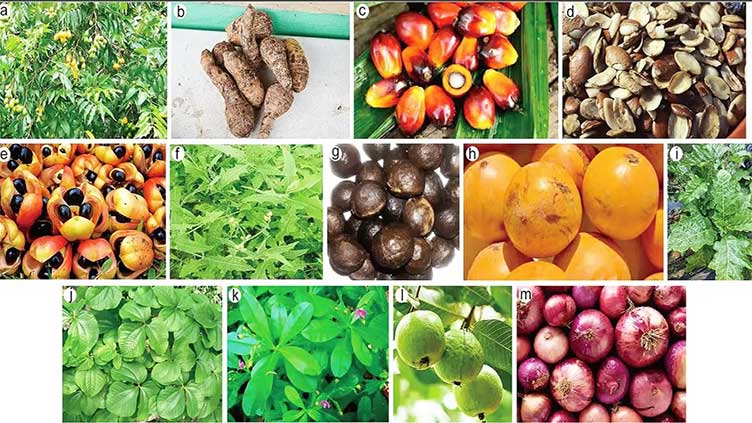Food plants demonstrated natural anti-cancer properties

Study shows they have potential to slow or even halt tumor growth
(Web Desk) - Cancer remains a leading cause of mortality across the globe: Breast, cervical, prostate, and liver malignancies are climbing steadily despite wider access to chemotherapy, radiotherapy, and targeted drugs.
For many patients, however, modern treatment is difficult to afford. This has sparked renewed interest in a largely untapped yet promising resource.
These plants – including their leaves, seeds, tubers, and fruits – are loaded with bioactive compounds. Laboratory studies show that many of these natural substances have the potential to slow or even halt tumor growth.
A growing body of evidence suggests that these plants, long consumed as part of the traditional diet, could be developed as low-cost, complementary tools in the nation’s fight against cancer.
PLANTS THAT PREVENT OR HALT CANCER
Researchers have catalogued dozens of edible Nigerian species with measurable anti-cancer activity, but nine stand out for the breadth of experimental data already available.
Spondias mombin (hog plum) contains the flavonoid quercetin along with carotenoids that trigger apoptosis – the “self-destruct” program in malignant cells – while simultaneously tamping down inflammation.
Xanthosoma sagittifolium, a cocoyam cultivated widely in the humid south, produces tannins and other phenolics that cause leukemia cells to stall in the cell-cycle, blocking proliferation and reducing the formation of new blood vessels that tumors need in order to expand.
Oil palm (Elaeis guineensis) is often maligned for ecological reasons, yet its vitamin-E–rich tocotrienols are potent antioxidants; in breast cancer models they lower cell viability and force cells into arrest, nudging them toward death.
Irvingia gabonensis, the African bush mango, supplies gallotannins that regulate metabolic pathways linked to tumorigenesis and stimulate immune surveillance.
Allium cepa, the humble onion, is packed with organosulphur compounds as well as flavonoids that up-regulate detoxification enzymes, mop up DNA-damaging free radicals and may even help reverse multidrug resistance.
Blighia sapida (ackee) fruit, famous for its culinary role in Caribbean cuisine, also grows in Nigeria; laboratory work shows its flavonoids can hamper the ERK5 pathway, a key driver of aggressive breast cancer.
Dioscorea dumetorum, a wild yam, synthesizes diosgenin – long prized in the pharmaceutical industry as a raw material for steroid hormones – which shuts off the pro-survival NF-κB and MAPK cascades in cancer cells.
Psidium guajava (guava) leaves have been used for generations to treat diarrhea; now their tannins and phenolic acids are recognized for inducing apoptosis and shielding DNA from oxidative injury.
Finally, Talinum triangulare, the protein-rich “waterleaf,” contains quercetin and other antioxidants that bolster immune responses and hinder tumor growth in vitro.


